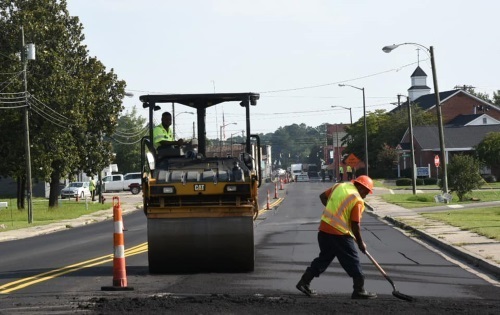The South Carolina Department of Transportation adopted on February 4 what it calls a “wide-ranging” Complete Streets policy for the state-owned highway system.
[Photo courtesy of the South Carolina Department of Transportation.]
That policy requires the South Carolina DOT to work with the state’s regional transportation planning partners and regional transit providers to identify and include walking, bicycling, and transit needs as part of their regional visioning plans. The agency will then tailor those plans to the “unique needs” of locales across the state, serving as a foundation for highway planning and design, construction, maintenance, and daily operations.
“The goal of this policy is to make our highway system safe and accessible to all users; drivers, passengers, bicyclists, pedestrians, and transit riders,” explained South Carolina DOT Secretary Christy Hall in a statement. “Proper planning is key to ensuring that the appropriate level of multimodal accommodations is provided in the right context, on the right project, and in the right manner to meet the needs of the community.”
Key components of the agency’s new Complete Streets policy include:
- Funding for pedestrian, bicycling, and transit accommodations is to be included in the budget for each project if warranted on the individual project and in accordance with the regional plans.
- Updating and modernizing agency design manuals to include multimodal accommodations.
- Establishing a council to facilitate ongoing communication to seek continuous improvement opportunities and initiatives.
“I appreciate the time and effort the various advocacy groups put into the new policy,” added Hall. “They have worked side-by-side with us from the beginning and we count on their input as we begin to make South Carolina’s highways more efficient and safer for all of our citizens.”

